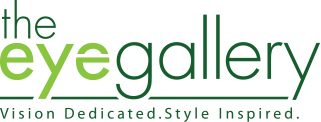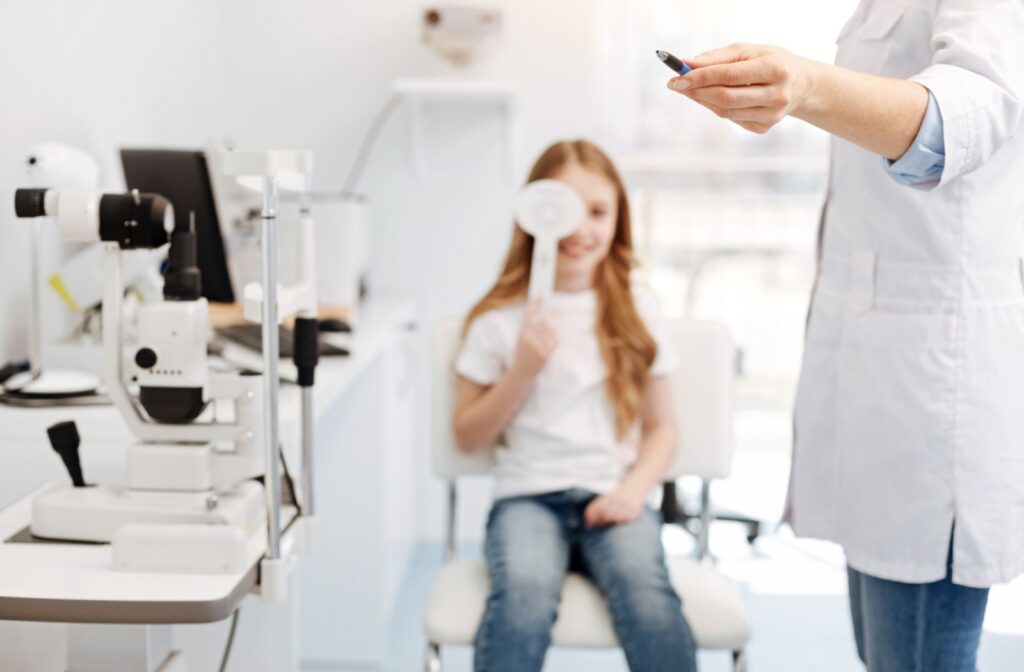It can be difficult to recognize when glasses are necessary, especially if vision changes occur gradually. If you’re experiencing blurry vision, frequent headaches, or eye strain, a comprehensive eye exam can determine if you need glasses. Early diagnosis and correction of vision problems can greatly enhance your daily life and protect your long-term eye health.
Routine eye exams help identify refractive errors, monitor eye health, and ensure your prescription is up to date. Eye care technology is used to deliver accurate results to easily identify if glasses are a solution to your eye care problems.
Common Signs You May Need Glasses
Blurry Vision
Blurry vision at a distance or up close is one of the most noticeable signs that you may need glasses. This symptom could indicate nearsightedness, farsightedness, or astigmatism, which can all be corrected with prescription lenses.
Frequent Headaches
Recurring headaches, particularly after reading or using a computer, often result from uncorrected vision problems. Glasses can help reduce the strain on your eyes and alleviate this discomfort.
Eye Strain
Eye strain or fatigue, especially after extended periods of screen time or detailed work, is a common sign that your eyes are struggling to focus. Glasses designed for digital eye strain can provide much-needed relief.
Squinting to See Clearly
If you often squint to bring objects into focus, it may indicate a refractive error like astigmatism. While squinting may help temporarily, it can lead to further strain on your eyes.
Difficulty Seeing at Night
Trouble seeing at night, particularly while driving, can indicate a need for glasses. This issue, sometimes called night blindness, can be improved with lenses designed for low-light conditions.
Double Vision
Double vision, where you see two images of the same object, may result from muscle imbalances or other vision issues. Vision therapy combined with glasses may help restore proper alignment and clarity.

The Importance of Regular Eye Exams
Eye exams are critical for identifying whether you need glasses and monitoring your overall eye health. During an exam, your optometrist will evaluate your visual acuity, check for refractive errors, and look for signs of eye conditions like cataracts or glaucoma.
Annual eye exams are recommended for most people, as they help detect vision changes early and ensure your prescription remains accurate. If you have an existing condition or a family history of eye problems, more frequent exams may be necessary.
How Glasses Improve Vision
Glasses not only correct vision and reduce eye strain but also offer a stylish way to enhance both your eyesight and personal expression. Glasses improve vision by:
Correcting Refractive Errors
Prescription glasses address refractive errors by ensuring light focuses properly on the retina. This correction leads to sharper, clearer vision for both near and far distances.
Reducing Eye Strain
Specialized lenses, such as those with blue-light filtering, can reduce the discomfort caused by prolonged screen use. This can be particularly beneficial for individuals experiencing digital eye strain.
Adding Style & Comfort
With a wide range of frames and lens options available, glasses provide both functionality and a way to express your personal style. Explore frames and lenses to find the perfect match for your preferences.
When Should You Visit an Optometrist?
If you’re experiencing symptoms such as blurry vision, headaches, or difficulty focusing, it’s time to schedule an eye exam. Addressing vision issues early prevents them from worsening and ensures you can enjoy clear, comfortable vision.
At The Eye Gallery in Wichita, we’re here to support your vision needs. Whether you require a comprehensive eye exam, myopia control, or stylish frames, our team is ready to help. Visit our practice or schedule your eye exam today.




